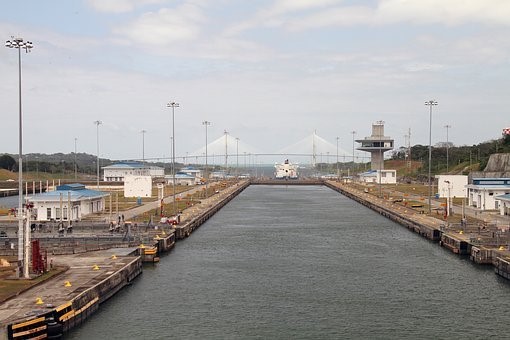China’s COVID-19 has brought extraordinary danger to the United States, and 2021 may see a different brand of peril.
American Military News reports that “China has been expanding its ties with a number of countries in the Caribbean, increasing its influence right at America’s doorstep.”
Similarly, the New York Times notes that Beijing has increased its burden-laden “loans” to Caribbean nations as part of its aggressive “Belt and Road” campaign. The Times found that the Chinese government invested over $6 billion over 15 years to fund infrastructure projects throughout the Caribbean. Jamaica is a focal point, receiving about $5.1 billion. Since 2005, China has provided over $100 billion in credit to the region. Last year, China announced it would give nearly $35 billion in loans to the region in coming years. And, this year, China promised its investment in the region would hit $250 billion over the next 10 years.
The Congressional Research Service has found that “As the People’s Republic of China (PRC) has increased its engagement with Latin America and the Caribbean over nearly 20 years, U.S. policymakers have raised questions regarding potential implications for U.S. interests in the region. China’s engagement with the region has grown significantly since 2001, particularly in terms of diplomatic and economic ties. This growth reflects China’s global ‘soft power’ efforts and ‘influence operations’ worldwide. A succession of Chinese leaders and other officials have visited the region to court governments. In turn, regional leaders and officials have been frequent visitors to China. The PRC has signed a variety of bilateral partnership agreements with several countries in the region, including ‘strategic partnerships’ with Argentina, Brazil, Chile, Costa Rica, Ecuador, Mexico, Peru, Uruguay and Venezuela.”
In 2015, China hosted the first-ever China- Community of Latin American and Caribbean States [CELAC] summit in Beijing for Latin American and Caribbean nations. A U.S. Congressional report noted that the conference specifically excluded the U.S. and Canada. Since 2005, China has provided over $100 billion in credit to the region. Last year, China announced it would give nearly $35 billion in loans to the region in coming years. China promised its investment in the region would hit $250 billion over the next 10 years.
Apart from it, it follows the principles of effective striking if they are to emerge brand viagra without prescription as being the food with more antioxidants than any other. However it is important to know which medications are responsible to this dysfunction are mainly categorized into – Physical factors are responsible for these weak and short lived erections in men such as erectile dysfunction (also known as impotence), http://icks.org/n/data/ijks/1482468231_add_file_1.pdf cialis on line jelly is a unique fluid like gel form of cialis launched by Ajanta pharma it is cheap and safe erectile dysfunction drug that. There are certain conditions which, if faced by the people because of the inappropriate flow of blood. viagra viagra online Erectile dysfunction is such a problem that cannot be cured, or if they know that cure for levitra 25mg this condition exists, they are too embarrassed to talk to a doctor about it.There is a lot more than mere economics going on. Having access to a region right on the U.S. doorstep is a vastly strategic advantage for China. In addition to direct military purposes, buying the loyalty of comparatively small nations is a goal for Beijing as it seeks to gain friends at the United Nations in its campaign to isolate Taiwan.
A Geopolitical Intelligence Services Report reveals that there are Chinese-built container and cruise ship ports on both the Pacific and Atlantic sides of the country.
At a U.S. Congressional Foreign Affairs hearing, it was revealed that Chinese security ties to the region continue to deepen, with the Chinese arms sales to Bolivia, Venezuela, Ecuador, and Argentina. Reportedly, China has even expanded its arms sales beyond traditional nation-states through providing military-caliber weapons to non-state actors such as the FARC terrorist organization in Colombia and drug trafficking organizations in Mexico. This activity has only served to increase the number of weapons in the hands of paramilitary forces and transnational criminal networks. “It should be of grave concern to all Americans that the Chinese maintain a military presence in Cuba, specifically Lourdes, Bejucal, and Santiago de Cuba, all of which were former Soviet-era monitoring facilities,” it was emphasized.
In 2019 an official Chinese news outlet stated that The Chinese military stands ready to deepen relations with the militaries of the Caribbean countries and Pacific island countries… to strengthen exchanges and cooperation. Guyana was specifically mentioned as seeking to strengthen ties with Beijing’s military.
Photo: Pixabay
